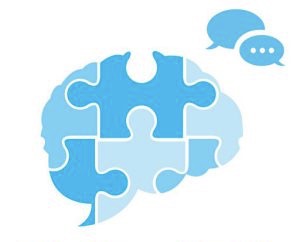Wind Down Before Bed
Try to create a relaxing bedtime routine. You could take a warm bath, do some reading or listen to some calming music before bed. One study finds that a predictable set of pre-sleep activities is associated with improved sleep onset latency and sleep consolidation in young children.
Environment
Keep your bedroom dark, quiet and warm when you are trying to sleep. The optimum room temperature for sleep is between 18c and 24c. Darkness is essential to sleep. The absence of light sends an important signal to the body that it is time to rest. When the body senses darkness, a hormone called melatonin is released. Melatonin causes the body to enter a relaxed state, optimum for sleep.
Set a Sleep Schedule
Creating a sleep schedule programmes the brain and internal body clock to get used to a set routine which can make it easier to fall asleep when your bedtime nears. Most adults require between six and nine hours of shut-eye every night. By working out what time you must wake up, you can set a regular bedtime schedule.
Exercise During the Day
Getting 30 minutes of moderate exercise a day can promote sleep. You will have used up your energy during the day, which will make your bed look a lot more inviting.
Exercise increase the duration and quality of sleep by boosting the production of serotonin in the brain and decreasing levels of cortisol, the stress hormone. However, do not do any intensive exercise right before bed as this can actually keep you awake as your body also releases hormones that energise you.
Turn Off All Electronics
You have probably heard this many times but it is said for a reason! Keep your devices away from you at least as hour before it is time to sleep. The blue light from these devices can inhibit the production of that all important ‘sleep hormone’ melatonin that we mentioned earlier! If you feel you must do something, opt for reading a book instead.
Limit Caffeine
Caffeine can have a disruptive effect on your sleep. The most obvious effect of the stimulant is that it can make it hard for you to fall asleep. One study also found that caffeine can delay the timing of your body clock. These effects will reduce your total sleep time. Caffeine also can reduce the amount of deep sleep that you enjoy.
Use Sleep Enhancing Supplements
If all else fails, the use of sleep enhancing supplements can help you fall asleep as a short term fix.
Supplements that can help you fall asleep include:
- Magnesium. Magnesium helps activate the neurotransmitters required for sleep. Doses of 200–400 mg per day, taken with food, have been shown to improve sleep.
- 5 HTP (5-hydroxytryptophan). 5-HTP boosts the production of serotonin, which has been linked to the regulation of sleep. Doses of 300–500 mg per day, taken either once daily or in divided doses, seem to be effective in treating insomnia.
- Melatonin. Melatonin is a hormone naturally produced by the body, but it can also be taken as a supplement to help regulate your sleep. Doses of 0.5–5 mg taken 30 minutes before bed seem to improve sleep quality.


Thank you for this information. I’d like to add that Melatonin can cause restless leg/ limb syndrome in some people. I used to use it for sleep and then developed restless limbs, which is incredibly disturbing whilst trying to fall asleep.
Lavender oil on the soles of your feet seems to be pretty effective and some ground nutmeg in warm milk also helped me for a while.
LikeLiked by 1 person
Very helpful comment! Thank you!
LikeLiked by 1 person
Technology is the hardest for me to quit at bedtime…
LikeLiked by 1 person
Very informative! I usually lay down and read a book before going to sleep, usually at the same time every night. It is part of my routine and I find that it helps me tremendously.
LikeLiked by 1 person
So helpful! I used this info to help my sleeping pattern get back on track. If you guys wanna know how I got through depression check my latest blog post, would love to connect with all of you!
LikeLiked by 1 person
Very helpful! Someone has mentioned using lavender oil, I burn lavender incense whilst having my night time bath or by my bed whilst I’m trying to get to sleep. You could also use a mindfulness activity to try and get yourself calm and ready to sleep.
LikeLiked by 1 person
This is really inspiring. I’ve been using Epsom salts in my bath before bed which I’ve found helps because of the magnesium in it and have a 4pm deadline for any caffeine. The one I struggle with is not watching TV just before bed. I’m working on it though!
LikeLiked by 1 person
I have trouble sleeping myself. It’s good to read articles with ideas on how to help this problem. I actually leave my phone computer and tablet in the other room and quit caffeinated beverages all together. Sometimes I think my medication has a lot to do with my sleep patterns. I makes me drowsy then wears off over night and I wake up a lot. Thanks for sharing.
LikeLiked by 1 person